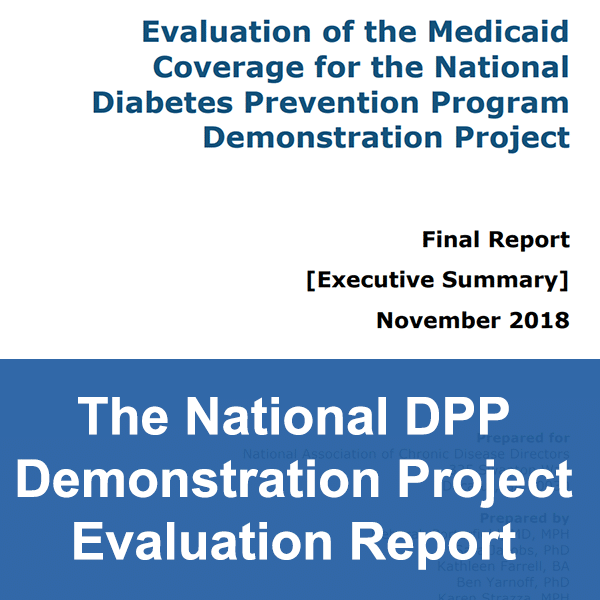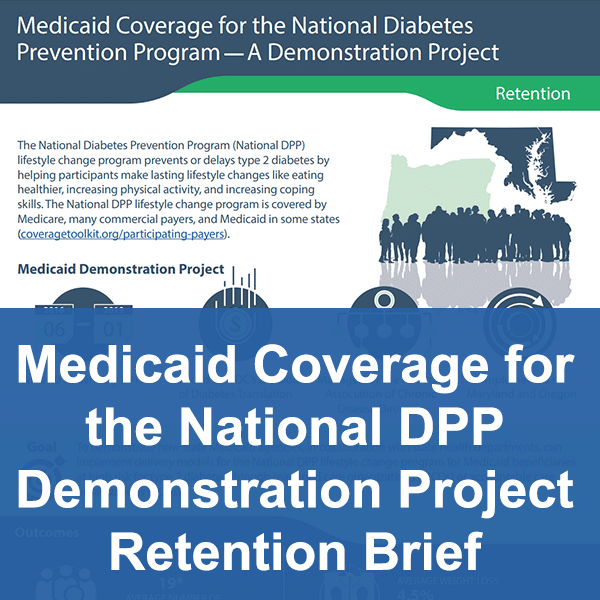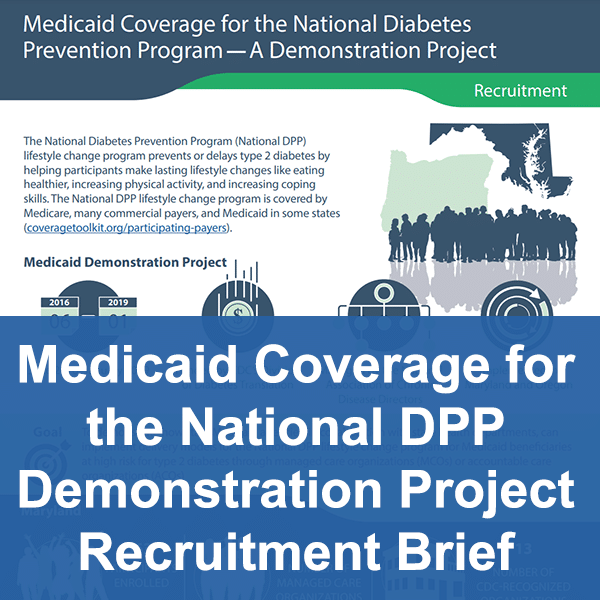Medicaid Coverage for the National DPP Demonstration Project
NACDD, with funding from the Division of Diabetes Translation at CDC, led the Medicaid Coverage for the National Diabetes Prevention Program (National DPP) Demonstration Project with Maryland and Oregon to show how state Medicaid agencies and state health departments can collaborate to implement, deliver, and sustain coverage of the National DPP lifestyle change program.
Establishing coverage for the National DPP lifestyle change program for vulnerable populations, including Medicaid beneficiaries, is a key factor in promoting health equity, lowering costs, and improving health. The National DPP lifestyle change program is especially important for Medicaid beneficiaries, who are more likely to develop type 2 diabetes than non-Medicaid populations. States that expanded Medicaid have seen their diabetes rates increase as the number of insured increases – underscoring the need for preventive efforts in this population.
The Medicaid Coverage for the National DPP Demonstration Project was a multi-year project carried out in two states, Maryland and Oregon, and designed to work through and develop solutions for the real-world challenges of Medicaid coverage for the National DPP lifestyle change program. The Demonstration advanced understanding of the processes and systems-building needed to achieve sustainable coverage of the National DPP lifestyle change program for Medicaid beneficiaries.
A project of this scope could never have been successful without the tireless work of multiple partners. Our sincerest gratitude is extended to:
- Our partners in Maryland and Oregon for their deep commitment and extensive contributions to this work
- CDC for their guidance and support
- Leavitt Partners for their exceptional expertise and partnership
- RTI International for successfully taking on the tremendous task of evaluating this project
- Members of the Expert Panel and national partners for their input and continued commitment.
A robust evaluation conducted by CDC and NACDD, along with RTI International, documented evidence that the National DPP lifestyle change program can be effectively implemented through Medicaid managed care. Importantly, program retention for the Medicaid beneficiaries involved in the demonstration was higher than the national average, and the weight loss average of 4.5% of body weight came close to the 6% national average. The evaluation also generated specific recommendations in the areas of planning, organizational capacity, strategies for engaging and retaining Medicaid beneficiaries (including addressing social determinants of health), costs, and developing effective community-based and online delivery networks.
Interested in watching a webinar about the Demonstration or reading the executive summary of the evaluation report? Please find those resources on this page.














